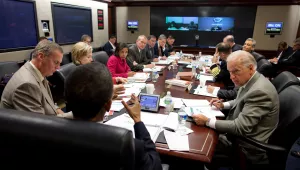Please join the Intelligence Project for a conversation with Rory Stewart on populism, foreign policy, and the shifts in the way that the U.S. and U.K. governments view security, diplomacy, and international development.
Rory Stewart is a Senior Fellow at the Jackson Institute, Yale University. Stewart focuses on contemporary politics in crisis and on international development and intervention in fragile and conflict-affected states.
Stewart was the UK Secretary of State for International Development where he doubled the U.K.’s investment in international climate and environment. Prior to that Stewart served in a variety of roles including Minister of the environment, Minister of State responsible for development policy in the Middle East and Asia and UK policy in Africa, as Minister of State for Justice, and as Chair of the House of Commons Defence Select Committee. Earlier in his career, he served briefly as an infantry officer and then as a diplomat for the UK government in Indonesia, the Balkans and Iraq. He founded and ran the Turquoise Mountain Foundation in Afghanistan and was the Director of the Carr Centre and the Ryan Family Professor of Human Rights at Harvard’s Kennedy School of Government. Stewart has also written four books: The Places in Between, Occupational Hazards or The Prince of the Marshes, Can Intervention Work?; and The Marches.


